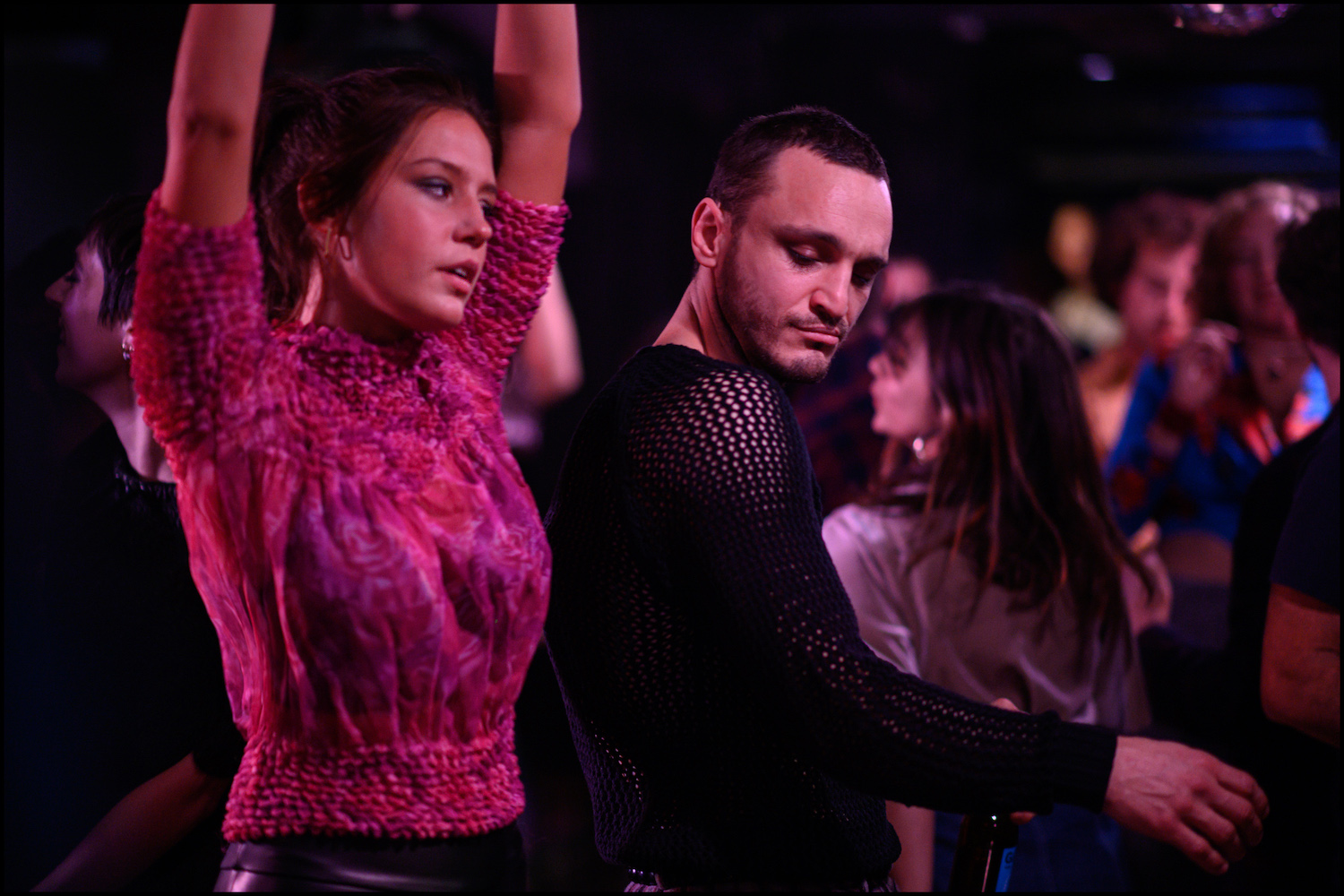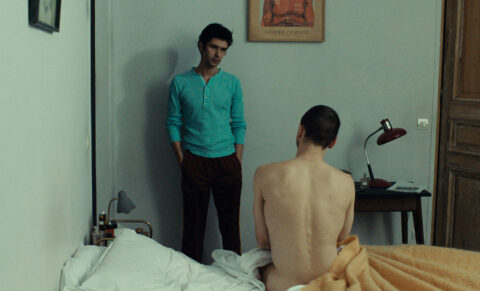If an American were to write a plain, non-comic version of a French relationship drama — with the spontaneous sex, the jealous lovers, conversations over wine in trendy bars, people riding their little bikes through the streets of Paris and characters that put their ego above all else — then you’d have a film like Passages (Ira Sachs, 2023). It certainly looks like the real thing. But it feels nothing like it. It feels like the perfect parody.
The parody is so perfect, in fact, it’s airless. There’s simply not much there at all.
(Proceeds to write 700 more words…)
Franz Rogowski plays Tomas, a controlling film director, bossing his actors down to every last detail, including the way they comport themselves as they walk down the stairs. He’s a needy, self-obsessed man. This may create great results on film sets but it portends disaster in his personal life. Seemingly bored of his boyfriend Martin (Ben Whishaw), he cheats on him with a girl, Agathe (Adèle Exarchopoulos). Unaware of how his actions may affect others, he tells Martin immediately. He thinks it might be a good thing for both of them.
Thus begins a bisexual ménage à trois journey that doubles up as a masterclass in a e s t h e t i c s. The interiors already feel imprinted on my mind: perfectly rugged apartments are both rustic and minimalist, casual and carefully created. The costumes also express character perfectly, from Tomas’ ugly vests to Agathe’s leather jackets to Martin’s more dressed-down look. The type of film grain used and the careful blocking also adds to the sophistication of their beautiful lives. It’s a very neat trick. It really does look good. It really does look French.
Too French.
Right down to The 400 Blows (François Truffaut, 1959) reference at the end.
(At least we were spared a Beau Travail (Claire Denis, 1999) reference. Those are illegal now.)
Most of the positive press that came out of Sundance mentioned how European it is. They mean Western European, of course — they’re not talking about Bucharest. “Europeanness” is suddenly a virtue; a more mature way of making films. But plenty of mature adult relationship dramas come out the USA too (more often on TV), so we assume that people are mostly referring to the semi-graphic sex scenes — of which there are several throughout the film.

I say ‘semi-graphic’ because the sex is still simulated and you don’t see anything really, but the movements of the actors and the sounds coming out of their mouths certainly gives off a proper sex vibe. But it does not give off a sexy vibe. These are two different things. While sex for its own sake in cinema doesn’t necessarily have to be justified, these scenes didn’t work as well for someone who hangs out in the sex trenches of European cinema all year round — and not just at Sundance. To me it felt quite rote; eroticism is not built up and released; they suddenly just do it. It makes the whole thing performative, not evocative. Not in the slightest. Even Philippe Garrel does this better.
Anyways, in parodying French cinema, Sachs missed one crucial ingredient. For if there’s one thing that the French excel in, its conversation. They have a true love of conversation, circling around the topic and finding new ways to look at it. It’s saying things you don’t mean in order to provoke the other person. It’s conversation about ideas and art and what it all means. But the dialogue in Passages is very plain. Maybe I missed something important, but there’s nothing there to suggest alternative feelings and emotions: you’re still being spoon-fed a very simplistic “American” narrative hidden within the outer-layer of a European vibe.
There’s only one moment where the film threatens to have an edge. Tomas and Agathe are having dinner with her parents. With bad English, they grill him on his commitment to her. Unused to having to give concrete answers to questions, and unable to deflect them through charm, he is visibly, brutally uncomfortable. But this genuinely difficult edge is rarely prodded again. There’s few revelations here apart from the self-evident assholery of Tomas himself.
The elliptical editing means the movie feels much shorter than it is. It’s a bit like The Souvenir (Julia Hogg, 2019) in the way it stacks scenes on top of each other to give a sense of an ending rather than a definitive one.
But these passages feel like just that. Passages. I feel like I was promised a whole novel but instead I got a Wikipedia synopsis. This is an exercise in Frenchness that’s mere millimetres away from being a segment in a sketch comedy.

Redmond is the editor-in-chief of Journey Into Cinema.
